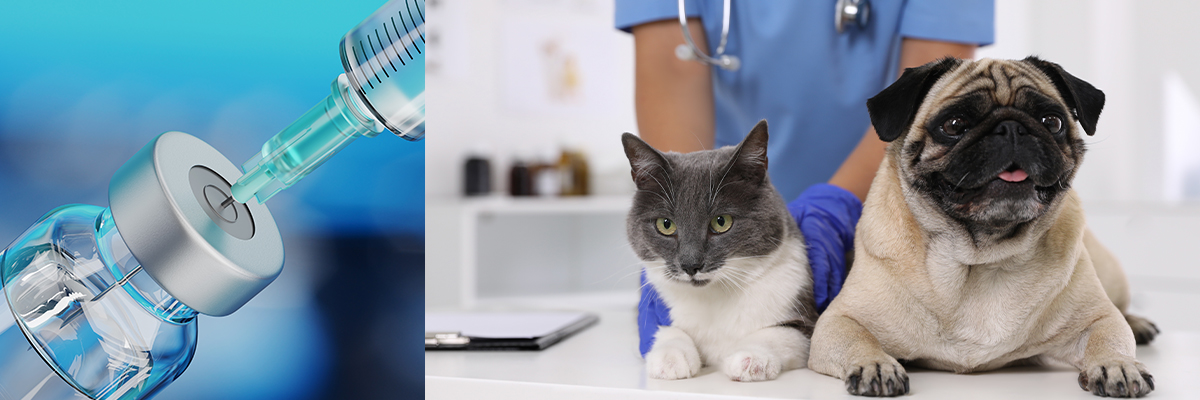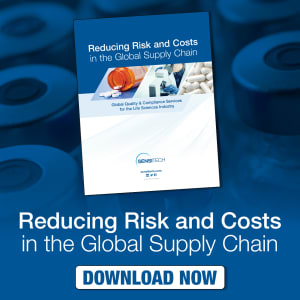The Importance of Compliant Temperature Monitoring for Animal Health Products
How to Protect the Integrity of Veterinary Medicines During Distribution and Storage

Maintaining a sustainable cold chain during the distribution and storage of animal health products requires careful consideration to avoid harmful conditions. Humanity has a lot of stock in the health of animals, whether rooted in emotional attachment for pets or the cultivation of livestock as a backbone to our food system. Veterinary medicinal products are an essential component of keeping animals healthy and free from disease.
The stability and efficacy of temperature-sensitive animal health products may be affected if they are exposed to temperatures outside of their manufacturer-defined limits. Ensuring these products remain within their limits during transportation, handling, and storage is paramount, which is why monitoring temperature and other conditions in transit is crucial.
Animal health medicines and vaccines are subject to regulations in the EU, UK, and the United States that ensure their quality and identity during all aspects of their cold chain journey, from manufacturer to patient. New regulations in the EU, effective August 2021, dictate proper temperature control and temperature monitoring for Good Distribution Practices similar to those for pharmaceutical products intended for human use. It is essential to meet these standards and demonstrate control through calibrated monitoring and proper electronic recordkeeping.
![Download the Life Sciences Services Brochure Download the Life Sciences Services Brochure]() How to Transport Animal Health Products
How to Transport Animal Health Products
Suppliers of medicines for veterinary use are responsible for ensuring that manufacturer-defined temperature conditions are maintained within acceptable limits during transport. Suppliers must monitor and document these conditions.
Temperature-sensitive veterinary medicinal products should be transported using thermal packaging, temperature-controlled containers or vehicles, and monitored using validated dataloggers to provide assurance that no temperature excursions occurred.
Shipping lane risk assessments should be undertaken to determine where temperature controls are required. Equipment used for temperature monitoring during transport within vehicles or containers must be maintained and regularly calibrated.
How to Store Animal Health Products
Animal vaccines and medicines must be stored at the temperatures recommended by manufacturers, which is often between 2°C to 8°C. Refrigerators used for storage must be qualified using temperature mapping, proving proper storage conditions. Additionally, temperatures should be monitored at all times using a validated, compliant data management solution that records excursion data for regulatory purposes.
Thermal mapping your storage environment and equipment is essential to ensure the efficacy and safety of veterinary medicinal products, and is now a requirement per EU regulation 2021/1248 detailing Good Distribution Practices. This requirement applies to animal products imported, exported, or distributed within the European Union.
Other elements may also need to be considered, such as humidity exposure or cryogenic requirements. A quality stationary monitoring solution can offer sensors to provide this data instantly.
Demonstrating Temperature Control
An effective animal health supply chain extends beyond the point of delivery. Effective temperature control should be demonstrably documented in a validated system-of-record, which is auditable by inspectors. At the very least, a manufacturer and supplier should keep records of excursions, validation artifacts, qualification processes, and thermal mapping protocols, ensuring complete documentation that a product’s integrity has been maintained from manufacture to distribution.
Sensitech understands the importance of compliant temperature monitoring for animal health products. We offer a range of easy-to-use temperature monitoring solutions that meet regulatory compliance for the distribution and storage of veterinary medicinal products and devices. Learn more about our custom solutions.


